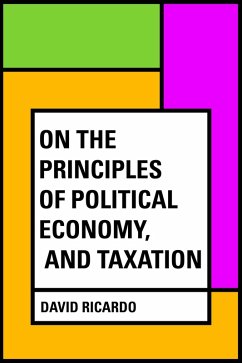
Letters of David Ricardo to Thomas Robert Malthus, 1810-1823 (eBook, ePUB)

PAYBACK Punkte
0 °P sammeln!
David Ricardo was an English political economist. He was one of the most influential of the classical economists, along with Thomas Malthus, Adam Smith, and James Mill.
Dieser Download kann aus rechtlichen Gründen nur mit Rechnungsadresse in D, E, F, I ausgeliefert werden.













